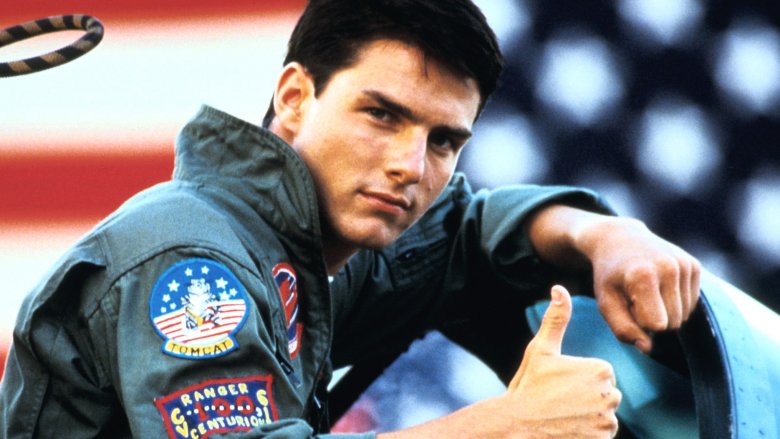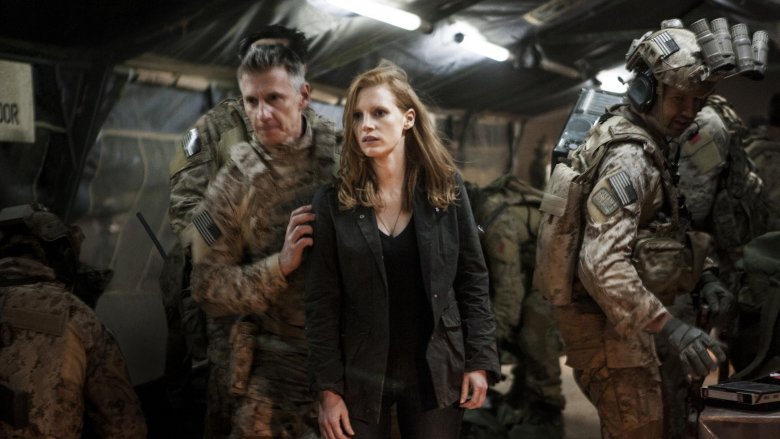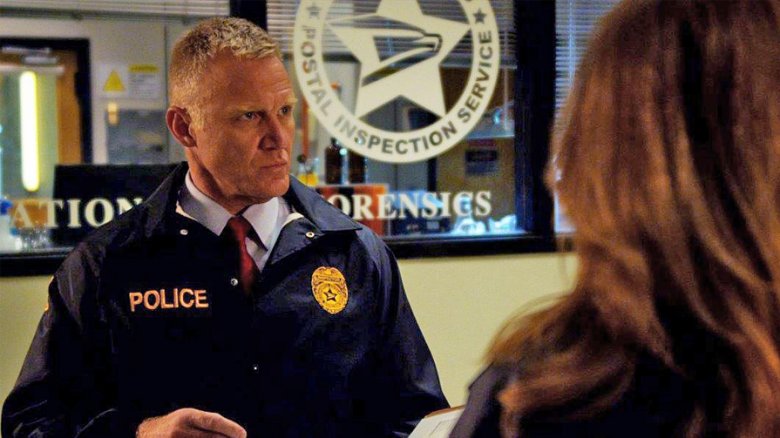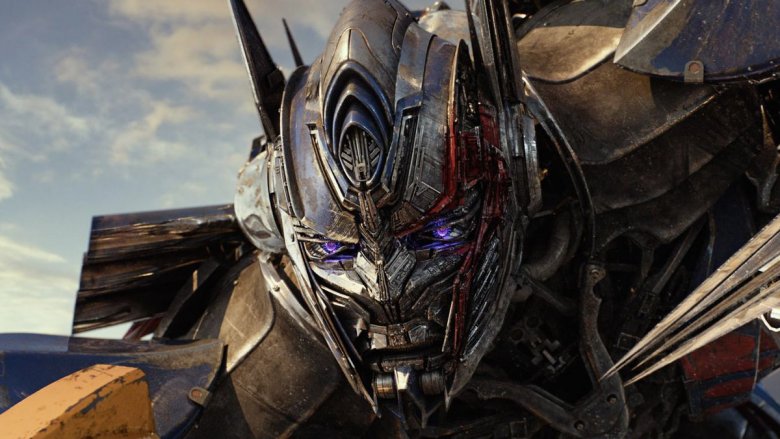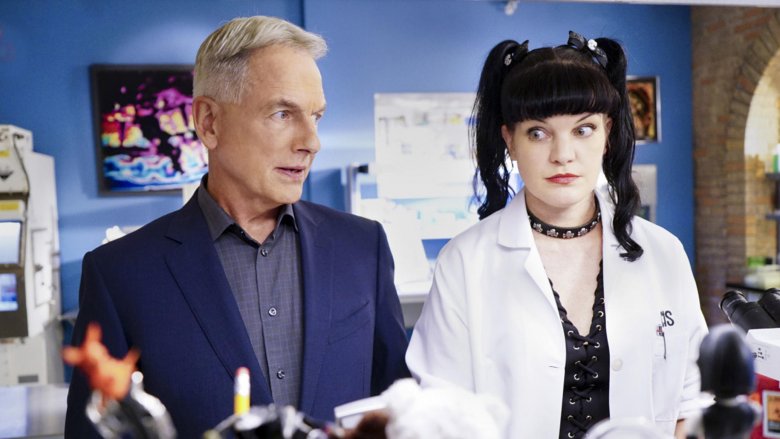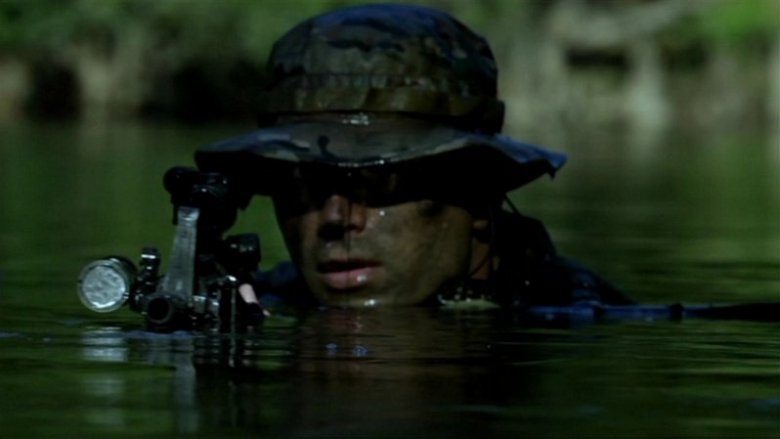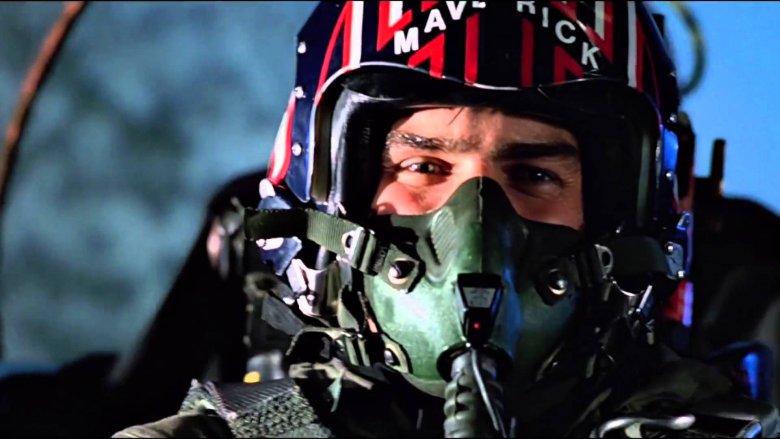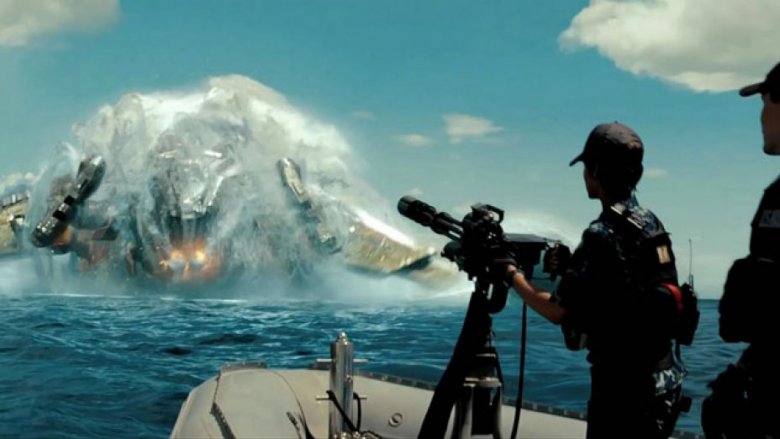Movies And TV Shows Sponsored By The U.S. Government
Americans are obsessed with media. They spend way too many hours of the day watching movies and TV shows when they could be, like, reading a book or volunteering or something. But it's so much easier to just sit back and let the pretty colors and sounds take you out of yourself. That means a lot of what we learn comes from the stuff we watch.
The U.S. government is not stupid. They know how effectively the big glowing screens suck people in and alter their thoughts. So they figured out a long time ago that they needed to get in on that. Sometimes this can be pretty innocent, like when they provide tanks and other stuff in exchange for a positive portrayal on film. Other times they take it up a notch, by helping studios produce what is essentially propaganda. And occasionally they just shell out cold, hard cash to make sure people hear "America is great!" loud and clear.
Zero Dark Thirty wants you to love torture
It's not surprising the CIA was happy to help with a movie about their most celebrated achievement in recent memory: finding and killing Osama bin Laden. A film all about how they were heroes who protected the American people would be great for their brand. So the assistance they gave everyone involved was unprecedented.
Vice says officials not only reviewed and critiqued the script, like they do with many movies, they gave the filmmakers access to secret details about the raid, which the public would only find out for the first time when they went and saw it in the theater. The writer and director also wined and dined agency workers, most of whom didn't declare the gifts initially. The working relationship was so close that it triggered an ethics investigation.
All this must be great if you're a producer trying to make a realistic movie. There was one huge catch, though: In exchange for their help the CIA demanded the movie show torture as an important and effective tool in nabbing the world's worst terrorist. Unfortunately, it was totally and completely untrue, and that's not opinion. The Senate Torture Report found that enhanced interrogation techniques "did not yield unique or actionable intelligence and had nothing to do with tracking down bin Laden." So instead of being an accurate portrayal, the movie ended up being turned into a very specific form of government propaganda. Plus, it made everyone in the theater feel sick.
The Inspectors teaches kids about the exciting world of mail crime
Not even your children are safe from government propaganda. Since 2015, the U.S. Postal Inspection Service, a branch of the government you've probably never even heard of, decided they needed to invade Saturday morning kids' TV and sponsored a crime procedural show based on their important mail-based exploits.
Whoever is in charge obviously thought letting young people in on their world was important because they shelled out $5.4 million for The Inspectors in the first two years alone, according to Deadline. However, the USPIS wants you to know that not a penny of your tax dollars went to this show because all the cash comes from "asset forfeiture and consumer fraud awareness funds."
It isn't just money the USPIS contributes, though. They give the writers access to their case files, the show is allowed to use trademarked logos and insignia, and there are technical advisers on set at all times "to make sure the law-enforcement procedures are as close to real as [possible]." The USPIS's national public information officer even compared the arrangement to the one the Navy has with mega-hit NCIS, although the Navy doesn't hand over money in exchange for being made to look good.
And that is absolutely the point here. There are no episodes about postal inspectors getting convicted of mail theft, for example, which is something that happens in real life. The goal of the show is to assist with "consumer awareness and crime prevention," exactly what kids want on their weekends.
The Pentagon is obsessed with the Transformers films
It's not just serious films or movies based on actual events that the military puts its stamp on. Basically, if your story involves the armed forces in any way, no matter how crazy the plot, the Pentagon will offer their assistance. Even the ultimate popcorn movies based on a 1980s toy and directed by Michael "Never Met Anything I Didn't Want to Blow Up" Bay were apparently worth their time.
The Transformers franchise got a lot of help from the military. According to Wired, the Air Force's film liaison officer read the first script and the Pentagon helped rewrite it. They liked it because the U.S. military plays a crucial role in defeating the Decepticons and seeing themselves do good on screen, even in a completely absurd situation, is apparently good for troop morale. To sweeten the deal, the Pentagon leased the filmmakers F-22 Raptor fighter jets for just $25,000 an hour.
Their first outing together must have gone well because when the sequel came around the military could not throw enough equipment at it. Wired also reported this included "two A-10 Thunderbolt II 'Warthog' tank-killing jets; six F-16 Fighting Falcons; 10 armored Humvees; the Army's Golden Knights parachute team; two Abrams tanks; two Bradley tanks; two missile-launcher vehicles; two armored personnel carriers; and a quarter-mile of the missile testing range, cleared of unexploded ordnance." If that sounds excessive, it probably was. According to the film's Army liaison officer, it was "the biggest joint military operation movie ever made."
Animal Farm showed America winning the Cold War
In the 1950s, a British film company released that country's first feature-length animated film to huge acclaim. Newspapers called Animal Farm better than Disney movies. It even had a gala premier at the United Nations. But what no one knew was the movie had been paid for by the CIA.
The truth would come out 20 years later when the government agent in charge of getting the rights wrote a memoir. According to the Telegraph, he claimed that George Orwell's widow agreed to hand them over after he promised to introduce her to Clark Gable. But the CIA didn't want to fund the movie just to help a sad lady pine after an actor.
The spy agency picked Britain to make its film for interesting reasons. First, the company they chose had been behind some very effective propaganda films during World War II and they wanted to emulate that. Second, the CIA worried that U.S. animators might have left-leaning politics, or even be dirty Commies. They clearly couldn't be trusted with an anti-Communism film.
While they obviously thought Orwell had done a pretty good job beating readers over the head with how things in the USSR weren't great, the CIA took it even further. They got the filmmakers to change the ending. Instead of a bleak future where the evil pigs are in charge, the film has the farm animals get outside help (*cough* America *cough*) and valiantly overthrow their oppressors. That way all children learned that the West was totally going to kick Communism's butt.
Disney helped the war effort with 'Donald Gets Drafted' and more
Hollywood was a huge part of the war effort during World War II, and the government wasted no time getting them involved. Literally the same month the Japanese bombed Pearl Harbor the military approached Disney about basically becoming an official propaganda arm. According to Der Spiegel, within half a year, the U.S. saw Donald get drafted and go fight the good fight.
Lots more cartoons followed, and they were very effective. This was at a time when two-thirds of Americans went to the movies every weekend. About 26 million people saw "The Spirit of '43" where Donald explained how important it was to save money so you could pay your taxes on time and thus rescue democracy. Viewers were so inspired that one-third of them admitted they actually stopped spending frivolously.
Important people saw the artistic merits of these cartoons. "Der Fuehrer's Face" found Donald trapped in "Nutzi Land" where everything, even the trees, was swastikas. The poor duck had to work in a munitions factory where he was required to heil Hitler faster and faster until he went nuts. Fortunately, then he woke up in a soft bed and American flag pajamas. It had all been a terrible nightmare, and just in case people watching didn't get the message, he said, "Oh boy, am I glad to be a citizen of the United States of America!" Then a tomato hits a picture of Hitler. It was hardly subtle, but it still managed to win best animated short at the Oscars in 1943.
NCIS shows the military always doing the right thing
No show about the military has ever been more popular than NCIS. Before 2003, almost no one had heard of the Naval Criminal Investigative Service. In fact, in the first episode the main character has to explain who he is and why he can get on a plane with a gun, something that actually happened to a former director. These days millions of viewers could tell you exactly why. To make sure people see their good side, the real NCIS is pretty invested in the show.
The NCIS communications director regularly interacts with the cast and crew, according to the USO. Part of her job is to read the scripts. If there's something she doesn't like, she calls the show's producers and tells them "that's not helpful in terms of getting a message out about what we do." The scripts usually get changed.
They work so closely with various branches of the military that the real Navy secretary even had a cameo on the show in 2009. But, of course, all this help comes at a cost. Wired says that while the show does depict bad behavior in the military all the time, every storyline ends with it being corrected. That way viewers get the idea that, really, the military is made up of swell people.
Bond films are totally micromanaged
You might be aware that martini-drinking, tuxedo-wearing, lady-seducing spy James Bond decidedly does not work for the American government. Being ridiculously over-the-top British is kind of his thing. But even though his movies are about the drama of being employed by MI6, the filmmakers are still beholden to the Pentagon. If a director wants to borrow any military equipment from them, they need to follow their rules, which has led to some ridiculous micromanaging of scripts.
For example, according to Hollywood and the CIA, Pierce Brosnan's first outing (GoldenEye) fell afoul of military bosses thanks to a single character. Originally the movie featured an American admiral who was seduced and killed by the Russian femme fatale, Xenia Onatopp. The Pentagon wouldn't stand for the honor of their top brass being besmirched like that, so they forced to producers to make him Canadian.
Meanwhile, in Tomorrow Never Dies, we see Bond parachuting into Vietnamese waters. Originally, a CIA agent warned him about what could occur if he got caught on his mission, saying, "You know what will happen, it will be war, and maybe this time we'll win." The Pentagon's film liaison office worried, in all seriousness, that this could cause an international incident. They had only recently reestablished diplomatic relations with Vietnam and apparently a throwaway line in a popcorn flick might be enough to undo all their hard work.
Act of Valor bigged up the Navy SEALs
After the 9/11 terrorist attacks, America suddenly found itself at war. This meant the military had to expand their most elite fighting force, the Navy SEALS. But adding 500 men meant doing enough outreach to get thousands of people interested in joining up. Eventually, someone hit on the idea of making a feature film about their fictionalized exploits.
According to SF Gate, the Navy went to movie studios with the pitch and stayed intimately involved through the whole process. The filmmakers soon realized that trying to train actors to be as badass as actual SEALs wasn't going to work. Instead, they cast the SEALs themselves. Everyone they approached originally said no, until the men were told by their superiors this was a legitimate military task and to get in the makeup chair.
It was important not to make a movie that just let enemies know exactly how SEALs worked, so the Navy watched every frame and took out anything that was even a little classified. Sometimes, they filmed outdated procedures. But it must have been pretty realistic still because the Navy kept all the raw footage to use in training exercises.
The timing ended up working out perfectly, since the movie came out just a few months after the country went Navy SEAL crazy. SEAL Team 6 had just taken out Osama bin Laden and suddenly everyone was aware of the most butt-kicking branch of the military, and the film helped them look even better.
Top Gun made people want to defend their country
The Vietnam War was a terrible embarrassment for the U.S. military. It had been controversial, failed to achieve its objective, and killed far too many people. The public was not quick to forgive; in the mid-1980s the military was still very unpopular. It didn't help matters that Ronald Reagan was all about the saber rattling when the country was tired of war. But then the Pentagon found their savior in a very short Hollywood heartthrob and a sweaty volleyball scene.
Top Gun was the first time the military had worked with filmmakers so overtly, according to the Washington Post. They let them use tons of warplanes and aircraft carriers for the bargain basement price of $1.8 million (meaning American tax dollars basically subsidized the movie). In exchange, however, the Pentagon demanded to go through the script line by line and change things to make sure they looked great. That's why instead of dying in a midair collision, as was originally written, Goose expires after an ejection scene because the Navy thought too many pilots were shown crashing.
The movie was a huge hit, making $344 million, and the military also profited. They set up recruiting booths at theaters showing the film, just in case anyone was so inspired by Tom Cruise that they wanted to put their life on the line for real. And amazingly, enlistment did spike. So did confidence in the armed forces. The mutual success inspired the current "Military-Entertainment Complex" and completely changed how Hollywood approached war movies.
Battleship was as realistic as possible, amazingly
It makes sense that the military wants to look awesome on screen as much as possible, but maybe they should pick their projects a little more carefully. How good can it be for recruiting (always the main goal) when the movie is hilariously bad? Like, for example, one starring a pop star based on a children's board game.
Apparently, the Department of Defense thought Battleship was worth the time. According to Fast Company, the Navy's chief of information looked at it this way: The movie was going to be made with or without the military's help, therefore it was in their "best interest" to offer assistance and make sure the movie "accurately portray who we are and what we do as a Navy." So the Navy spends their time fighting aliens? That's the only logical conclusion to draw, since a condition of their cooperation was giving the film's military a "realistic" enemy to fight.
In exchange for a completely pro-military script, the Navy gave filmmakers "extensive access to military facilities." Actors spent time out at sea to get into their roles, while principal photography took place during a real U.S. Pacific Fleet training exercise. If that wasn't enough, Navy advisers were always on set to help out.
The Navy must have been happy with the absolutely terrible final result because before the film's release they held special screenings of it at military facilities. The resulting increase in morale will be invaluable during the next alien invasion.
